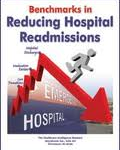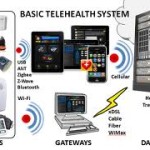7 Things to Know About the 2013/2014 Flu Season
What can we expect for the 2013/2014 flu season? What’s new? How are the flu strains chosen? What are the symptoms? How can you prevent the flu? What groups at the highest risk?
Home » Healthcare Preventitive Care » Page 2
What can we expect for the 2013/2014 flu season? What’s new? How are the flu strains chosen? What are the symptoms? How can you prevent the flu? What groups at the highest risk?
The Affordable Care Act (ACA) is filled with hundreds of provisions that can read very much like the 10 commandments – “thou shalt” and thou “shalt not”. The ACA was designed to provide affordable accessible coverage to individuals while holding insurance companies accountable.
What factors go into the costs of healthcare? Fraud, waste, inefficiencies, limited number of primary care physicians, the rising costs associated with baby boomers, increased cases of chronic illness….. the list goes on and on. Enjoy this infographic.
So you know the major reasons why hospitals are losing money? Follow BHM Healthcare Solutions to stay updated on the reasons hospitals are losing money
While there is no cure to date for Alzheimer’s, there are several proactive steps you can take to reduce or prevent the effects of this disease. Do you know what the symptoms are? Do you know where to find additional information?
Obesity can lead to chronic diseases such as Heart Disease, Diabetes, Hypertension, Sleep Apnea, Osteoarthritis, and Hypertension. Chronic diseases are a contributing factor to rising readmission rates which in turn are contributing to the rising costs of healthcare. What can we do as a nation to help reduce the prevalence of obesity?


Summary: Hospital readmissions are of major concern and account for a large portion of preventable healthcare costs. Is telehealth the answer or at least a

The Affordable Care Act (ACA) is a common term referring to the Patient Protection and Affordable Care Act (PPACA) of 2010. Other terms used
are Healthcare Reform and Obamacare.
